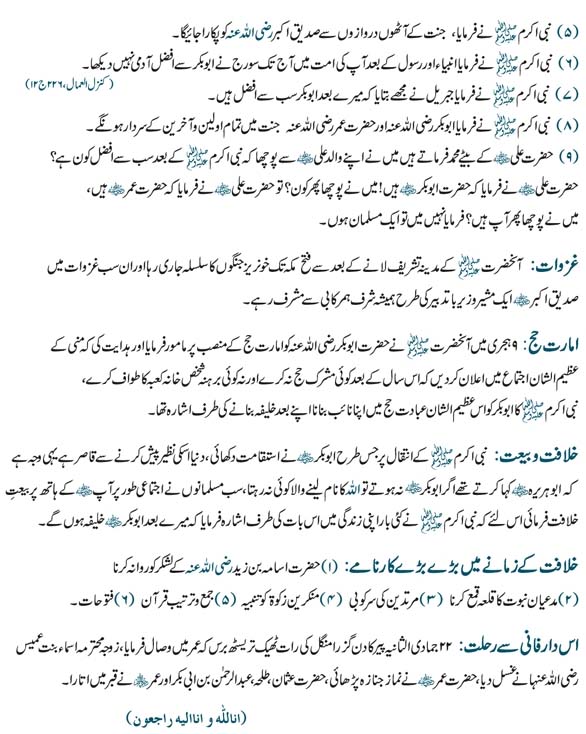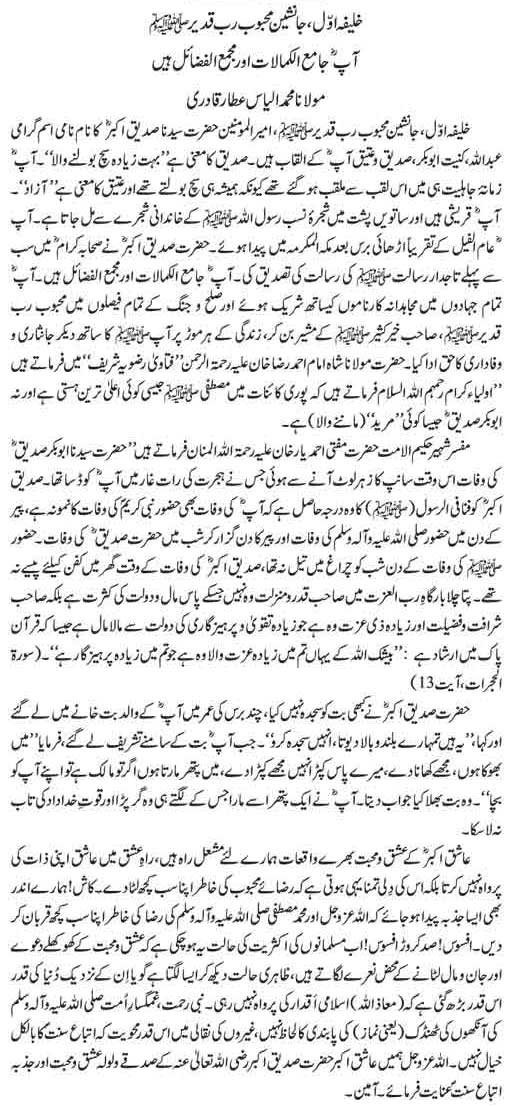Hadrat Abu Bakr Siddique Radi Allahu Ta’ala Anhu was a merchant before the advent of Islam and once traveled to Syria on business. While there, he had a dream in which he saw the sun and the moon descend from the sky and fall onto his lap. He took hold of them, placed them against his chest, and then stored them in a sheet. In the morning, he met with a Christian priest and sought an interpretation of the dream.
The priest asked him, “Who are you?”
“I am Abu Bakr, a resident of Makkah.”
“Which tribe are you from?”
“The Banu Hashim.”
“And what’s your means of livelihood?”
“Business.”
The priest then said,
“So listen carefully: The Final Prophet, Muhammad (Peace and Blessings of Allah be Upon Him), has arrived, and he is from your tribe. If it weren’t for him, Allah wouldn’t have created the Earth, the Heavens, or even another prophet. He’s the leader of whatever came first and whatever comes last. O Abu Bakr! Soon you’ll join this deen and become both a minister and a viceroy of it. This is the dream’s interpretation. Listen too, that I’ve read the praise of this Prophet in the Torah and in the Bible, and I’ve already brought Iman upon him and accepted Islam – only I haven’t revealed this yet to the Christians out of fear.”
Hearing this, the love for the Holy Prophet began to grow within Hadrat Abu Bakr Siddique Radi Allahu Ta’ala Anhu, and he immediately headed back to Makkah, looked for the Holy Prophet (Peace and Blessings of Allah be Upon Him), and cooled his eyes with his blessed sight.
The Prophet SallAllaho Alaihi wa Sallam saw him and said, “Abu Bakr! You’ve come. Now quickly enter the religion of truth.”
Hadrat Abu Bakr respectfully replied, “Fine, but I’d like to see a miracle.”
The Prophet SallAllaho Alaihi wa Sallam said, “Whatever you saw in Syria, and its interpretation by the priest, was solely my miracle.”
Hearing this, Hadrat Abu Bakr replied,
صدقت يارسول الله انا اشهد انك محمد رسول الله
You’ve spoken the truth, and I testify that Muhammad is the Messenger of Allah.” [Jami’ul Mu’jizat, Page 14]
Lesson: We see that Hadrat Abu Bakr Siddique Radi Allahu Ta’ala Anhu is a true Khalifa of Islam, and also that nothing of the happenings of the world is unknown to the Beloved Prophet (Peace and Blessings of Allah be Upon Him). We also come to know that had it not been for our Beloved Prophet (Peace and Blessings of Allah be Upon Him), nothing else in this world would have been created!!








